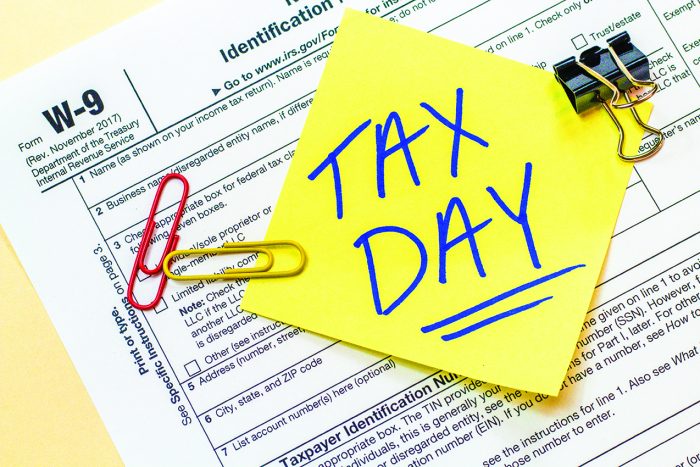Some people look forward to filing their tax returns, while others recoil at the thought of paying what they owe. Regardless of which camp taxpayers are in, come April most people have a question or two related to their returns. As the deadline to file tax returns draws closer, taxpayers hoping to make the process as smooth as possible can consider these frequently asked questions and answers, courtesy of the Internal Revenue Service.
When is deadline day? Though taxpayers periodically get an extra day or two to file their returns when April 15 coincides with a holiday or lands on a weekend, there’s no such reprieve in 2025. This year all taxpayers who are not requesting an extension must file their income tax returns by April 15, 2025.
What if my address has changed? The IRS urges all taxpayers to use their new address when filing their returns. Additional ways taxpayers can update their address with the IRS is through the filing of Form 8822, Change of Address or Form 8822-B, Change of Address or Responsible Party-Business. Written statements or oral notifications are additional ways to notify the IRS of an address change, and these methods must include personal information, including the old and new address as well as the taxpayer’s Social Security number, Individual Taxpayer Identification Number (ITIN) or Employer Identification Number (EIN).
Is there an age limit on claiming my child as a dependent? A child must meet either the qualifying child test or the qualifying relative test in order to be claimed as a dependent. To meet the qualifying child test, your child must be younger than you or your spouse if filing jointly and either younger than 19-years-old or be a “student” younger than 24-years-old as of the end of the calendar year.
There is no age limit to claim a child as a dependent if a child is “permanently and totally disabled” or meets the qualifying relative test. In addition to meeting the qualifying child or qualifying relative test, you can claim that person as a dependent only if these three tests are met:
1. Dependent taxpayer test
2. Citizen or resident test, and
3. Joint return test
Taxpayers who remain uncertain about their eligibility to claim a child as a dependent are urged to contact the IRS or a tax preparation professional for clarification before filing their returns.
What should I do if my W-2 is incorrect? Employers must provide employees with a W-2 by January 31. If the W-2 is incorrect and has not been fixed by the end of February, taxpayers can contact the IRS and request to initiate a Form W-2 complaint. When such a request is initiated, the IRS sends a letter to the employer and requests that they furnish a corrected W-2 within 10 days. The IRS also sends a letter to the taxpayer with instructions and Form 4852, which can be used to file a return if a corrected W-2 is not provided before the filing deadline.
How can I file for an extension? There are three ways to request an automatic extension of time to file an income tax return.
1. You can pay all or part of your estimated income tax due and indicate that the payment is for an extension using your bank account; a digital wallet such as Click to Pay, PayPal, and Venmo; cash; or a credit or debit card.
2. You can file Form 4868 electronically by accessing IRS e-file using your tax software or by using a tax professional who uses e-file.
3. You can file a paper Form 4868 and enclose payment of your estimate of tax due (optional).
Tax day arrives on April 15. Taxpayers who have lingering questions about their returns are urged to contact the IRS via irs.gov or work with a certified tax professional.







